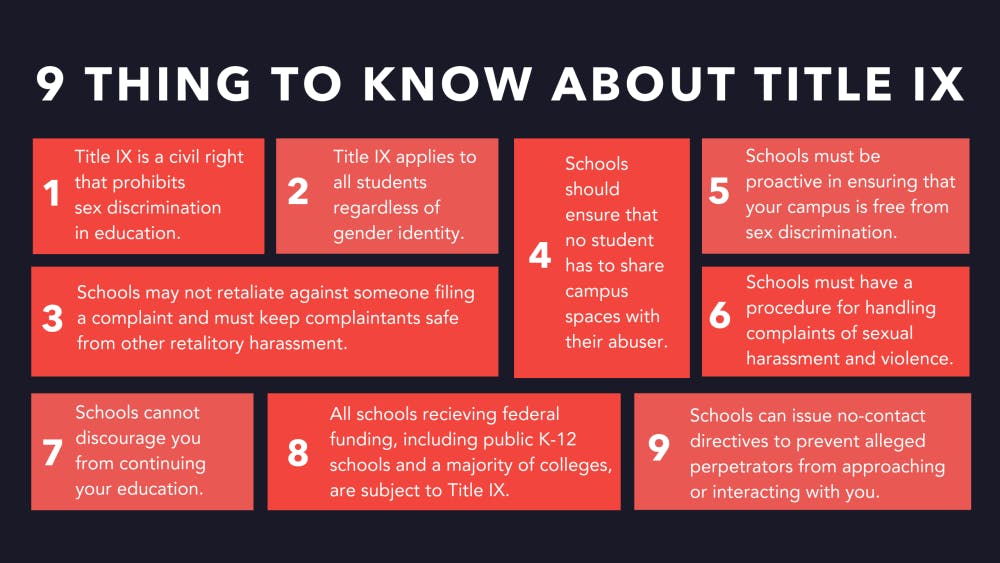Earlier this month, President Joe Biden ordered a review of federal rules guiding colleges on how they handle sexual misconduct. This is the first step in reversing the Trump administration’s controversial changes to Title IX, the federal law that forbids sex discrimination in education. The new regulations put into place by the Trump administration bolstered the rights of the accused and narrowed the scope of sexual misconduct cases colleges were required to investigate.
“Title IX for us as a campus-based organization has a significant impact on the way we are able to show up and help survivors navigate their experience,” said Julia Kelley-Vail, direct services coordinator of the Sexual Harassment and Rape Prevention Program (SHARPP).
She explained Donald Trump’s changes to Title IX haven't impacted the core of SHARPP's work but have changed the tone of conversations with survivors about what to expect from the reporting process.
One significant change is that schools must now dismiss complaints of sexual misconduct that occur outside university-controlled buildings or educational activities. This means that Title IX does not cover misconduct that occurs in off-campus housing or during study abroad. Yet, an average of 84.4% percent of college students live off campus and rates of assault are an estimated five times higher in study abroad programs, according to the Know Your IX website.
The narrower definition of sexual harassment has also caused difficulty, said Kelley-Vail. Under the Obama administration, sexual harassment was defined as any “unwelcome conduct of a sexual nature,” whereas the new rules assert the conduct must be “severe, pervasive, and objectively offensive.”
“Having to meet that threshold we’re potentially asking survivors to continue to be subject to this harassment before it can reach the level of being addressed under Title IX,” said Kelley-Vail.
Although an incident that doesn’t fall under Title IX can still be addressed if it violates UNH’s student conduct policies, Kelley-Vail says it can still have a “big impact” on survivors to hear the school is dismissing their Title IX complaint.
However, the change to the live hearing process has received the most outcry. Under the new rule, “colleges must allow live cross-examination by the “representative” of each party’s choosing.” This means survivors can be cross-examined by the perpetrator’s parents, friends, fraternity brothers/sorority sisters or lawyers.
Previously, during live hearings at UNH, both parties would submit written questions that would be asked by a three-person panel. This new process “could be incredibly re-traumatizing” for survivors, says Kelley-Vail. She recalls that the live hearing had already been a dealbreaker for some survivors in past years.
In addition, instead of a summary report, the full interview between a survivor and investigator now goes to the other party as part of the directly related evidence at the end of the investigation. This offers more opportunities for re-traumatization, explained Kelley-Vail.
However, she asserts that some changes could be beneficial to survivors. Previously, mandated reporters were required to report sexual misconduct to the university and the university would investigate it if they thought it was warranted. Now, a formal Title IX process will not start unless a survivor has made a formal complaint. Although, “asking a survivor to have to write a coherent verbal statement about what they've experienced that's being sent directly to the accused party” can still be difficult.
It will likely take years for the federal government to make changes to Title IX, but legal experts expect Biden to seek a middle ground that will equally protect the rights of the accuser and the accused.
“[It’s] important for the integrity of a process, everybody’s rights need to be retained,” said Kelley-Vail.
More information about student protections under Title IX can be found on the Know Your IX website.
Photo courtesy of Know Your IX.












